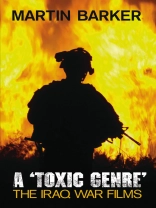Over the last five years, a cycle of films has emerged addressing the ongoing Iraq conflict. Some became well-known and one of them, The Hurt Locker, won a string of Oscars. But many others disappeared into obscurity. What is it about these films that led Variety to dub them a ‘toxic genre’?
Martin Barker analyses the production and reception of these recent Iraq war films. Among the issues he examines are the borrowing of soldiers’ You Tube styles of self-representation to generate an ‘authentic’ Iraq experience, and how they take refuge in ‘apolitical’ post-traumatic stress disorder. Barker also looks afresh at some classic issues in film theory: the problems of accounting for film ‘failures’, the shaping role of production systems, the significance of genre-naming and the impact of that ‘toxic’ label.
A ‘Toxic Genre’ is fascinating reading for film studies students and anyone interested in cinema’s portrayal of modern warfare.
表中的内容
Acknowledgements
1. The disappearing Iraq war films
2. No True Glory: the film that never was
3. Constructing an ‘Iraq war experience’
4. From Doughboys to Grunts: the ‘American soldier’
5. Understanding film ‘failures’
6. Bringing the war home
7. Explaining the Iraq war
8. Producing a ‘toxic genre’
9. Free-riders and outliers
10. Latino grunts: the new victim-heroes
11. The Hurt Locker and beyond
Notes
Bibliography
Index
关于作者
Martin Barker is Research Professor at Aberystwyth University. He has researched and published widely on topics ranging from comic books, censorship campaigns, arguments over ‘dangerous media’. He is the author of A Toxic Genre (Pluto, 2011) and From Antz to Titanic (Pluto, 2000).












